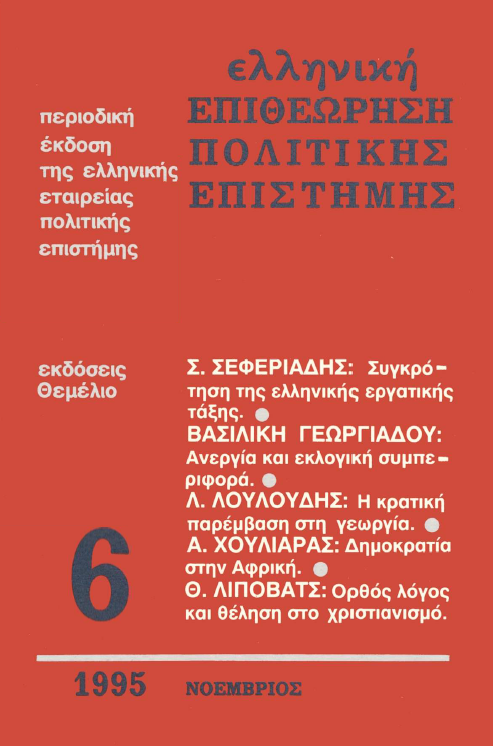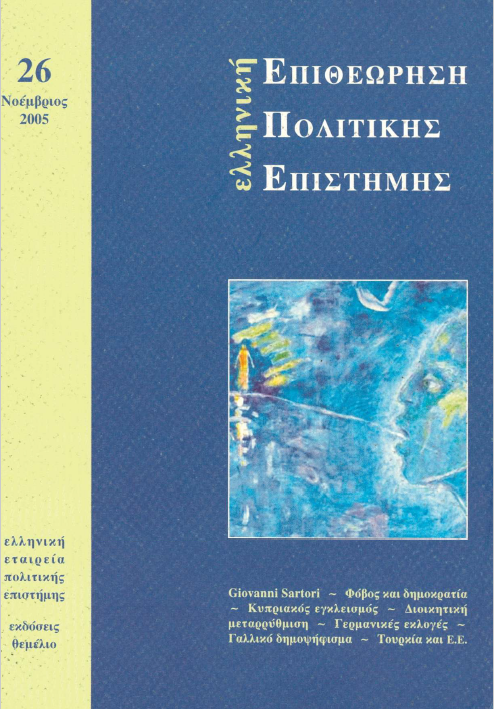Economy and electoral behaviour. The party preferences of the unemployed under employment crisis

Abstract
As far as specific electoral behaviour of the unemployed is concerned, three working hypotheses are made in this article: (1) the apathy hypothesis, (2) the mobilization (radicalization) hypothesis, and (3) the realignment hypothesis. Although certain empirical surveys are conducive to definite theoretical conclusions, one can hardly maintain that there is a single dense theory of the unemployed people’s electoral behaviour. Based on the available empirical and theoretical material, the author claims that the electoral behaviour of the unemployed is multifaceted. Decreased non-voting and political interest, preference of governmental parties supported by traditional clientelistic bonds, or/and the rising of anti-governmental attitudes as well as the twist towards the extremes of the party systems attended by non-conven- tional forms of political participation, are some of the possible political reactions of the unemployed which are in need of thorough study and verification suggested in this article.
Article Details
- How to Cite
-
Γεωργιάδου Β. (2017). Economy and electoral behaviour. The party preferences of the unemployed under employment crisis. Greek Political Science Review, 6(2), 79–120. https://doi.org/10.12681/hpsa.15282
- Issue
- Vol. 6 (1995)
- Section
- Articles

This work is licensed under a Creative Commons Attribution-NonCommercial-ShareAlike 4.0 International License.
Authors who publish with this journal agree to the following terms:
Authors retain copyright and grant the journal right of first publication with the work simultaneously licensed under a Creative Commons Attribution licence that allows others to share the work with an acknowledgement of the work's authorship and initial publication in this journal.
Authors are able to enter into separate, additional contractual arrangements for the non-exclusive distribution of the journal's published version of the work (e.g. post it to an institutional repository or publish it in a book), with an acknowledgement of its initial publication in this journal.
Authors are permitted and encouraged to post their work online (preferably in institutional repositories or on their website) prior to and during the submission process, as it can lead to productive exchanges, as well as earlier and greater citation of published work (See The Effect of Open Access).



